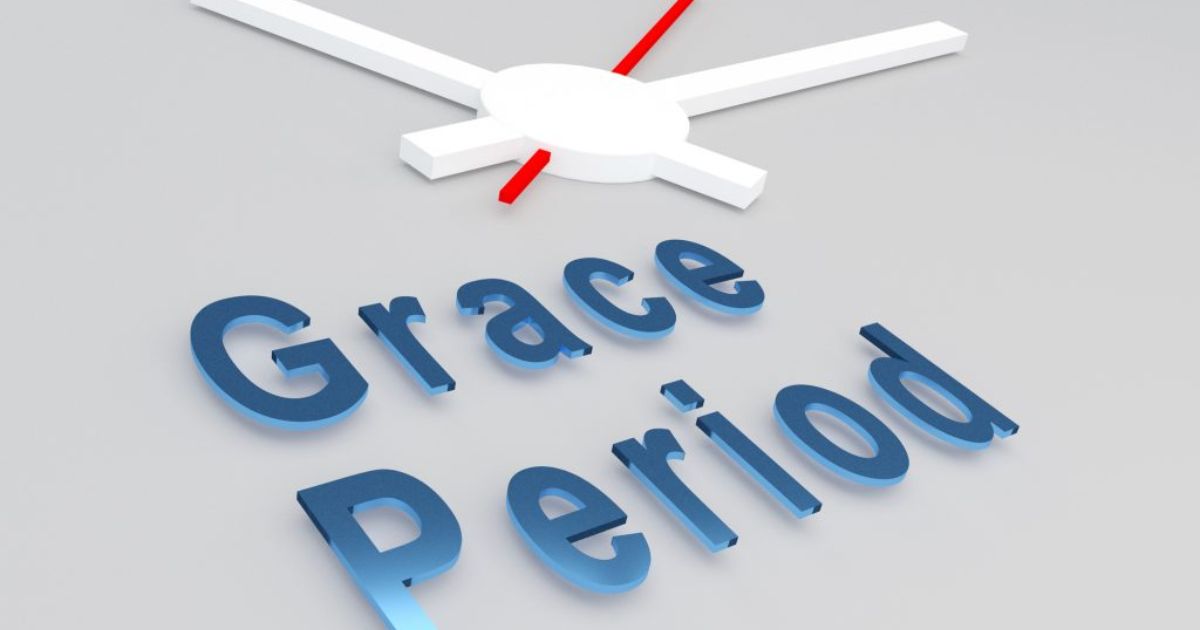In the realm of health insurance, time is of the essence. As the adage goes, “a stitch in time saves nine.” It is crucial to understand the concept of a 30-day grace period for health insurance premiums. This article aims to provide an objective and informative exploration of this topic, shedding light on the importance of paying premiums on time, consequences of missed payments, and the rights and options available during a grace period. Join us as we navigate the intricacies of managing health insurance premium payments.
Key Takeaways
- A grace period is a specified period of time after the due date of a premium payment, during which the policyholder can make the payment without any penalty or loss of coverage.
- Timely premium payments ensure continuous coverage without interruptions.
- Late payments can have serious consequences, including coverage termination or suspension.
- Policyholders can maintain coverage during the grace period, even with late premium payment.
Understanding Health Insurance Grace Periods
Frequently misunderstood by policyholders, understanding health insurance grace periods is crucial for effectively managing coverage and avoiding potential lapses in benefits. A grace period is a specified period of time after the due date of a premium payment, during which the policyholder can make the payment without any penalty or loss of coverage. This provides a temporary safety net for individuals who may be facing financial difficulties or other unforeseen circumstances. However, it is important to note that grace periods are not a guarantee and can vary depending on the insurance provider and policy terms. Failure to make premium payments within the grace period can result in consequences such as a lapse in coverage, loss of benefits, or even termination of the policy altogether. Therefore, it is essential for policyholders to be aware of their grace period benefits and to make timely premium payments to avoid any negative repercussions.
The Importance of Paying Your Health Insurance Premiums on Time
Paying your health insurance premiums on time is crucial to ensure continuous coverage without any interruptions. Timely premium payments are necessary to maintain the validity of your health insurance policy and avoid any gaps in coverage. Failing to pay your premiums on time can result in the suspension of your health insurance benefits, leaving you without essential healthcare coverage.
Timely Premium Payments
The timely payment of health insurance premiums is crucial to ensuring uninterrupted coverage and access to quality healthcare services. Late payments can have serious consequences for policyholders, including the potential for coverage to be terminated or suspended. To manage late payments effectively, it is important for individuals to understand the potential consequences and take steps to prevent them. Here are three key points to consider when managing late payments:
- Communication: If you are unable to make a payment on time, it is important to contact your insurance provider and explain the situation. They may be able to offer alternative payment arrangements or provide guidance on how to avoid coverage disruptions.
- Grace Periods: Some insurance policies may offer a grace period, typically 30 days, during which late payments can be made without immediate consequences. However, it is important to note that coverage may still be suspended or terminated if payment is not received within the grace period.
- Automatic Payments: Setting up automatic payments can help ensure that premiums are paid on time. This can provide peace of mind and help avoid the risk of coverage interruptions.
Managing late payments and paying health insurance premiums on time is essential for maintaining uninterrupted coverage and access to quality healthcare services. By understanding the potential consequences of delayed payments and taking proactive steps to prevent them, individuals can ensure that their health insurance remains in effect when they need it most.
Coverage Without Interruptions
Ensuring consistent and timely payment of health insurance premiums is essential for maintaining uninterrupted coverage and access to quality healthcare services. When it comes to coverage options, health insurance plans typically offer different premium payment frequencies, such as monthly, quarterly, or annually. Eligibility requirements for these plans may vary, but it is important to understand that failure to pay premiums on time can result in a lapse in coverage. This means that during the period of non-payment, individuals may not have access to healthcare services and may have to pay out-of-pocket for any medical expenses incurred. It is crucial to prioritize timely premium payments to avoid any disruptions in coverage and ensure continued access to necessary healthcare. Now let’s explore what happens if you miss a health insurance premium payment.
What Happens If You Miss a Health Insurance Premium Payment
If you fail to make a health insurance premium payment, it can result in a lapse of coverage and potential financial consequences. It is essential to understand the possible outcomes of missing a payment and explore alternatives to avoid any negative impact on your coverage and finances. Here are three key points to consider:
- Coverage lapse: Missing a premium payment can lead to a temporary loss of health insurance coverage. During this lapse period, you will not have the benefits and protections offered by your policy, leaving you vulnerable to unexpected medical expenses.
- Reinstatement options: To reinstate your coverage, you may have a grace period to make the payment without any penalty. It is crucial to contact your insurance provider and explore the available options to avoid a prolonged lapse.
- Financial implications: In addition to the loss of coverage, there may be financial consequences for missed premium payments. Some insurers charge late fees, and your credit score could be affected if the unpaid premium is sent to collections.
To avoid such consequences, consider setting up automatic payments, exploring alternative payment plans, or contacting your insurance provider to discuss any financial difficulties you may be facing. It is essential to stay proactive and informed to maintain continuous health insurance coverage.
Exploring the Concept of a 30-Day Grace Period
During the discussion on health insurance premium payments, it is important to explore the concept of a 30-day grace period to understand the potential benefits and implications it may have on coverage and financial stability. Grace periods are periods of time after a missed premium payment where policyholders can still maintain their coverage. While the specific regulations regarding grace periods may vary by state and insurance provider, the general idea is to provide a buffer for individuals who may be experiencing temporary financial difficulties. The benefits of a grace period include the ability to maintain coverage without interruption and avoid immediate termination of the policy. However, there are also drawbacks to consider, such as the potential for accumulating debt during the grace period and the possibility of coverage restrictions or limitations. Understanding the rights and options available during a health insurance grace period is crucial for policyholders to make informed decisions and navigate through any financial challenges they may face.
Rights and Options During a Health Insurance Grace Period
Policyholders have various rights and options available to them during a health insurance grace period, allowing them to maintain coverage and address any financial challenges they may encounter. Understanding grace period rights and the consequences of late premium payments is crucial for policyholders to make informed decisions. During a health insurance grace period, policyholders have the following options:
- Maintain coverage: Policyholders can continue to receive healthcare services and benefits during the grace period, even if their premium payment is late.
- Pay premiums: Policyholders can choose to pay their overdue premium during the grace period to avoid termination of coverage.
- Seek financial assistance: Policyholders facing financial difficulties can explore options such as premium assistance programs or payment plans offered by insurance providers.
It is important for policyholders to be aware of their rights and options during a grace period to ensure uninterrupted coverage and access to healthcare services.
Tips for Managing Your Health Insurance Premium Payments
To effectively manage your health insurance premium payments, it is essential to follow these tips and utilize available resources. Managing costs and avoiding lapses in coverage are crucial aspects of maintaining your health insurance. Firstly, it is important to review your policy and understand the payment schedule and due dates. Set reminders or automate payments to ensure timely premium payments. Additionally, consider exploring cost-saving options such as high deductible plans or health savings accounts. These options can help reduce monthly premium costs while still providing coverage for essential medical services. It is also recommended to regularly reassess your health insurance needs. If your circumstances change, such as a change in employment or family size, you may need to adjust your coverage accordingly. Finally, take advantage of available resources such as online portals or customer service representatives who can provide guidance and answer any questions you may have about managing your health insurance premiums effectively.
Frequently Asked Questions
Can I Still Receive Medical Care During the Grace Period if I Haven’t Paid My Health Insurance Premium?
During the grace period for health insurance, individuals may still receive medical care, but the financial implications may vary. It is important to understand the terms of the grace period and potential consequences for non-payment.
Are There Any Penalties or Fees Associated With Utilizing the 30-Day Grace Period?
Utilizing the 30-day grace period for health insurance does not incur penalties or fees. During this time, individuals can still receive medical care, including for pre-existing conditions, ensuring their well-being without financial burdens.
What Happens if I Miss Multiple Health Insurance Premium Payments?
If multiple health insurance premium payments are missed, there can be serious consequences such as loss of coverage and potential penalties. It is important to contact the insurance provider to discuss alternatives and address any outstanding payments promptly.
Can I Still Use My Health Insurance During the Grace Period if I Have a Pre-Existing Condition?
Yes, individuals with pre-existing conditions can still use their health insurance during the grace period. However, it’s important to note that coverage may be limited or subject to certain restrictions during this time.
How Does a Health Insurance Grace Period Differ From a Lapse in Coverage?
A health insurance grace period differs from a lapse in coverage in terms of duration and consequences. While a grace period allows for temporary coverage continuation, a lapse in coverage implies a complete termination and may have more severe repercussions.
Conclusion
In conclusion, health insurance grace periods serve as an important safeguard for policyholders who may experience temporary financial difficulties. Although not all health insurance plans offer a 30-day grace period, it is a common practice among insurers. During this grace period, individuals retain coverage and have the opportunity to catch up on missed premium payments. It is crucial for policyholders to understand their rights and options during this time to avoid potential coverage gaps and ensure continued access to healthcare services.







